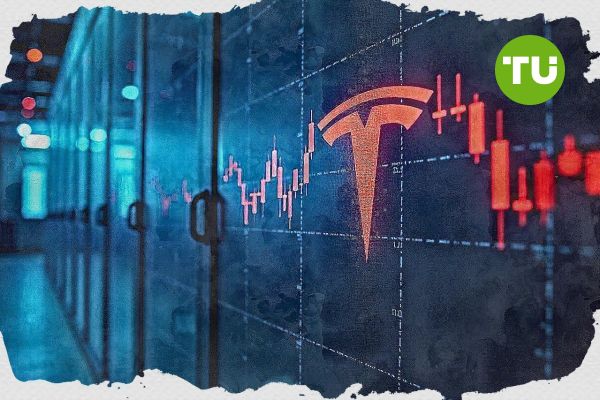Tesla stock drops 0.7% as EV tax credit boost faces demand and political headwinds
 The automaker reported a 14% year-over-year drop in Q2 vehicle deliveries
The automaker reported a 14% year-over-year drop in Q2 vehicle deliveries
As of July 10, Tesla stock is trading at $295.88, down 0.7% in 24 hours. Tesla Inc. (NASDAQ: TSLA) continues to exhibit technical weakness following a sharp pullback from its December 2024 high of $488.54.
Highlights
- Tesla is trading below key moving averages, signaling a bearish short-term trend with support at $285 and resistance near $365.
- Weaker Q2 deliveries and rising political scrutiny are pressuring sentiment despite potential EV tax credit boosts.
- A break below support could trigger a drop toward $225, while stabilization may open a path to recovery.
The current trading level of $295.88 places the stock nearly 39% below its all-time peak, underscoring the recent loss of bullish momentum. Technically, Tesla has broken below both the 50-day and 200-day moving averages, which now stand at $325.8 and $325.2, respectively. This crossover originally formed a “golden cross,” typically considered bullish, but the stock’s inability to sustain gains above these levels reverses much of that optimism.
Key momentum indicators remain neutral to bearish. The Relative Strength Index (RSI) sits at 47.59, suggesting Tesla is neither oversold nor overbought. The Moving Average Convergence Divergence (MACD) is currently negative at -1.03, which points to weakening momentum and supports a bearish short-term trend. Technicians are watching support at $285—if this level fails, the next critical floor lies around $225. On the upside, initial resistance is likely to be encountered around $365, with a stronger ceiling near $430, the level where the prior breakdown began in earnest.

Tesla stock price dynamics (May 2025 - July 2025). Source: TradingView
Volume has been mixed, and volatility has been slightly elevated relative to earlier in the year, as traders weigh macroeconomic and sector-specific risks. The technical posture suggests caution, with a bearish tilt unless the stock can decisively reclaim territory above the 50-day average.
Political friction, EV sentiment, and legislation
Tesla’s technical underperformance is reinforced by a complex macro and policy environment. Most recently, EV stocks—including Tesla—have shown modest strength on reports of new U.S. tax legislation that could extend federal subsidies for electric vehicles, including those not previously eligible. The MarketBeat article highlights how the Trump administration is working to expand access to the $7,500 tax credit through leasing structures, which could open up new demand across income brackets and bring marginal buyers into the EV market.
However, broader sentiment around Tesla remains fragile. The automaker reported a 14% year-over-year drop in Q2 vehicle deliveries, surprising to the downside and reigniting concerns over waning global demand. Tesla’s growing inventory, especially in the face of increased Chinese competition from BYD and XPeng, puts pressure on margins and unit growth. Some analysts argue that Tesla’s premium pricing and recent price cuts reflect structural demand challenges rather than mere cyclical softness.
Complicating matters further, CEO Elon Musk’s increasing visibility in political debates has turned Tesla into a more polarizing asset. As reported by Business Insider and the Wall Street Journal, analysts at Wedbush and CFRA have revised Tesla’s outlook in light of the company becoming a “political symbol.” While Musk’s brand continues to energize loyal investors, his high-profile statements and affiliations are raising reputational risks with institutional money.
Potential retest of support before rebound
Given the current technical setup and uncertain macro backdrop, Tesla's short-term trajectory appears skewed to the downside. If selling pressure persists and the stock breaks below $285, there is a strong possibility of a move toward the $225 zone, where longer-term buyers may re-enter. This would represent a high-conviction support level given previous consolidation in late 2023.
Conversely, if Tesla can find stability above $295 and retake the $310-$320 range, it could stage a recovery toward $365 resistance, particularly if legislative developments around EV tax credits gain traction and Q3 delivery expectations remain intact.
Tesla’s recent slump is being driven not just by technical factors but also by rising political concerns surrounding Elon Musk. His launch of the “America Party” and public clash with Donald Trump have sparked investor unease and raised governance questions.













































































































































